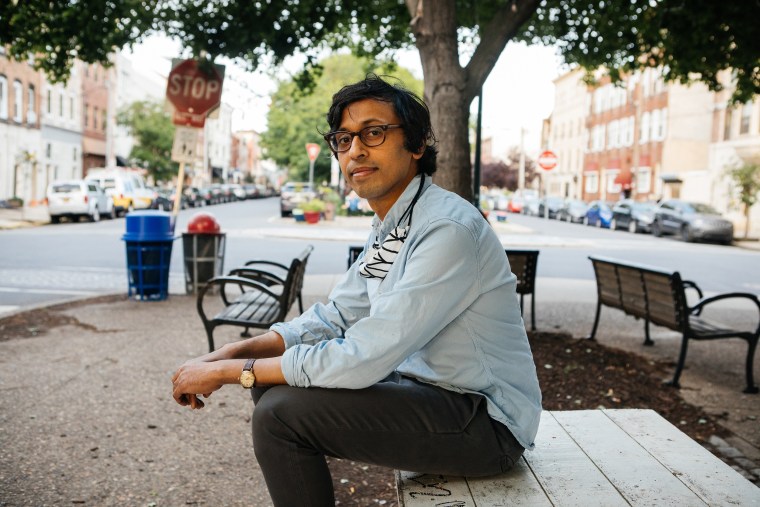Democratic candidate Nikil Saval became the first South Asian American elected to Pennsylvania’s state Senate last week. In addition to making history, Saval stands out for his unconventional resume.
Elected to represent Philadelphia’s diverse District 1, Saval was co-editor-in-chief of the literary magazine n+1. From 2012-19, he helped lead the Brooklyn-based publication, prioritizing coverage of issues like social justice and labor unions. He also wrote about architecture, urban planning and design as a contributor at The New York Times and the New Yorker.
He told NBC Asian America in an interview that he grew up in a liberal household and was interested in writing about culture, but not necessarily politics. And he hadn’t thought about joining the field while growing up or in college.
“I do think working at n+1 and writing about culture and politics intellectually helped give me clarity on how to think about these subjects together,” Saval said.
Saval, 37, who went to Columbia University and received a Ph.D. in English from Stanford, also wrote a book exploring the evolution of the American office, titled “Cubed: A Secret History of the Workplace,” and released in 2014.
Saval, who will take office Dec. 1, also talked about what his victory means for Asian American representation.
“I feel the significance of that especially when I walk into a room with a number of white people in it, which is Pennsylvania’s state Senate, for the most part,” he said. “Even more so, it’s when I encounter other Asian Americans who get pleasantly shocked that I won. There’s a pan-Asian solidarity that immediately develops.”
His parents emigrated from Bangalore, India, to New Mexico in 1970 before eventually settling in Los Angeles, where Saval was born and raised.
“We had a strong connection with the Indian American community there, especially the Kannada-speaking one,” he said.
His parents ran a pizza restaurant that primarily employed immigrants of all statuses. “My parents never saw a distinction between kinds of immigration status, so growing up there I really learnt from them about being welcoming to everyone.”
Saval noted that there is some amount of tokenization when it comes to focusing on ethnicity for candidates.
But shared that his identity does play a role in forming perspective.
“As an immigrant and as an Asian American, you bring in knowledge of other countries and practices and a global perspective to local problems,” he said.
For him, his family’s experiences as small-business owners helped form views on immigrants and workers rights.
His first experience organizing happened when he tried to unionize his own workplace while in the book publishing industry in 2005.
His efforts at the time didn’t produce desired results but the experience continued to galvanize him. At Stanford, he also volunteered with a labor union for hospitality workers. “It gave me the sense that people of color could band together and have the power to be progressive.”
While he continued his writing at n+1 after moving to Philadelphia in 2011, Saval became actively involved in Sen. Bernie Sanders' (I-VT) presidential campaign in 2016 because he resonated with the socialist values. Along with his fellow alumni, he then co-founded Reclaim Philadelphia, a platform that supports progressive candidates and policies.
As he got more involved, he was elected as ward leader of Philadelphia’s Second Ward in 2018. This work finally inspired him to run for office himself and he began his Senate seat campaign.
It primarily focused on issues like affordable health care, education and redevelopment of schools, a Green New Deal, and prison reform by supporting mass liberation over mass incarceration. Sanders, the Vermont independent, endorsed Saval in May.
“I feel immensely proud of the district that delivered my victory. It’s one of the most diverse ones in Pennsylvania,” he said. The first Senate district in Philadelphia has a population of 272,462, according to the Statistical Atlas, with nearly 40 percent of it nonwhite. "I’m excited to be the one who gets to represent them.”
The city is credited with helping Pennsylvania flip blue. Saval, who was running unopposed, said that he spent the months leading up to the election in his own district and neighboring ones to ensure high voter turnout.
“I think it’s a testament to the power of the working-class people, immigrants and their children, who helped deliver this victory on the progressive side,” he said.
Follow NBC Asian America on Facebook, Twitter and Instagram.
